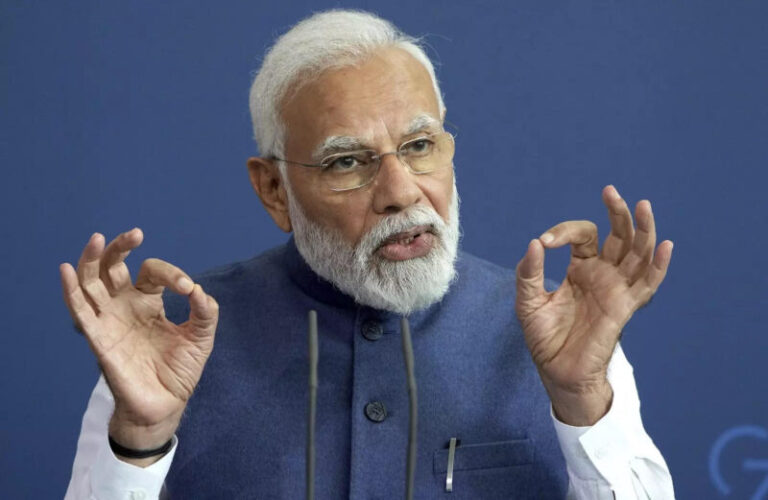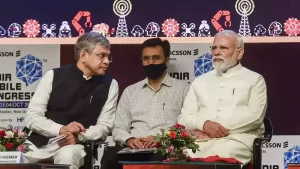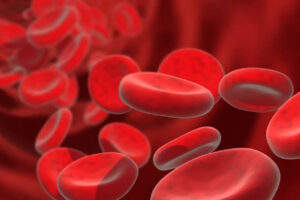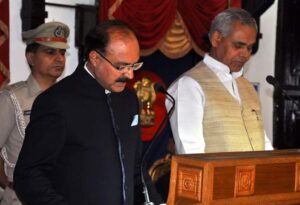The mid-day meal scheme will now be referred to as PM POSHAN, with the Centre initiating a serious political push pivoted around ‘child nutrition’, and announcing that around 24 lakh students receiving pre-primary education at government and government-aided schools also will be brought under the ambit of the scheme from next year.
Under the mid-day meal scheme, hot cooked food is provided currently to students from Classes 1 to eight — around 11.80 crore children altogether , in 11.20 lakh government and government-aided schools. Under PM Poshan Shakti Nirman or PM POSHAN scheme, 24 lakh more children in pre-primary classes, currently covered under the ICDS, also will be brought in. Last year, the govt had opened pre-schools called Balvatikas attached to angandwadis.
Education Minister Dharmendra Pradhan said PM POSHAN, approved by the cupboard Committee on Economic Affairs chaired by Prime Minister Narendra Modi Wednesday, will provide a replacement shape to the policy “to enhance the nutrition levels of schoolchildren”.
PM POSHAN has been launched for an initial period of 5 years (2021-22 to 2025-26). The Centre will bear Rs 54,061 crore of the entire estimated cost of Rs 1.3 lakh crore, with the states paying Rs 31,733 crore (Rs 45,000 crore are going to be released by the Centre as subsidies for food grains).
“The National Education Policy (NEP) has also recommended that pre-school education should be formalised. this is often a step towards that. Also, it’ll help prevent leakages and convey more transparency. we’ll become more hands on and nudge states to pay schools through the direct benefit transfer (DBT) mode,” Pradhan told reporters.
While the NEP also proposes breakfast in schools, the govt has not taken any decision thereon yet, he said PM POSHAN doesn’t propose any hike within the honorarium of cooks and workers, though Pradhan said states are “free to try to to that”.
The West Bengal government accused the Centre of just changing the name of the mid-day meal scheme. State Education Minister Bratya Basu said, “Nothing new within the scheme, including the 60-40 split within the expenditure (between) Centre and therefore the states! So why the new name — just bullying to feature the name of Prime Minister.”
The Mission Director of the Axom (Assam) Siksha Abhiyan Mission, Roshni Aparanji Korati, said PM POSHAN would “complement” their ongoing efforts. “We are fully geared towards implementing the new scheme. In fact, we’ve already been performing some of the items which are being introduced,” Korati said.
Primary (1-5) and upper primary (6-8) schoolchildren are currently entitled to 100 grams and 150 grams of food grains per working day each, to make sure a minimum of 700 calories. The new scheme features a provision for supplementary nutrition for youngsters in aspirational districts and people with high prevalence of anaemia. A senior government official said the revamped scheme essentially does away with the restriction on the a part of the Centre to supply funds just for wheat, rice, pulses and vegetables. “Currently, if a state decides to feature any component like milk or eggs to the menu, the Centre doesn’t bear the extra cost. Now that restriction has been lifted,” the official said.
An official said they are doing not anticipate a drag . “Annually, of the budgeted allocation, up to 80% of the funds are spent. Currently, the unspent amount is surrendered, but going ahead, that quantity are going to be used,” the official said Pradhan said that under PM POSHAN, nutri-gardens are going to be developed in schools to offer children “firsthand experience with nature and gardening”. Such gardens are already developed in three lakh schools, he said. “A social audit is being made mandatory altogether the districts. to market vocal for local, women self-help groups and farmer producer organisations are going to be encouraged to supply a fillip to locally grown traditional food items,” he said.
The scheme also plans “inspection” by students of schools and universities for ground-level execution Pradhan also talked about the concept of ‘Tithi Bhojan’, introduced in 2018. “Children coming from affluent families are going to be urged to bring two lunch boxes in order that nutritious food are often provided to needy kids. it’ll be completely voluntary,” he said. Communities would even be encouraged to supply the youngsters food at festivals etc, while cooking festivals to encourage local cuisines also are envisaged.
Tamil Nadu is taken into account the pioneer in introducing mid-day meals in government schools. However, the scheme because it stands currently has skilled a series of changes since being introduced first in 1995 as a Centrally sponsored scheme across 2,408 blocks for college kids up to Class 5. In 2007, the UPA government had expanded it to Class 8.
While the Centre bears the whole cost of food grains and their transportation, also as takes care of the management, monitoring and evaluation under the scheme, components like cooking costs, payments to cooks and workers are split during a 60:40 ratio with states Several studies over the years have shown the critical role played by midday meals in increasing enrolment and preventing dropouts.







